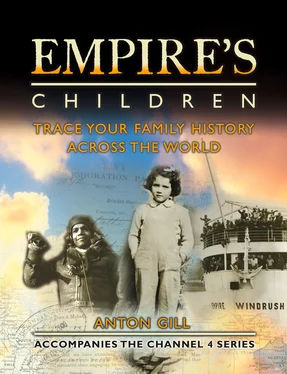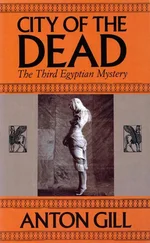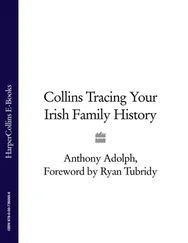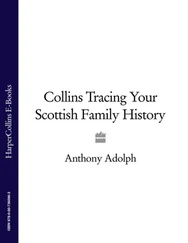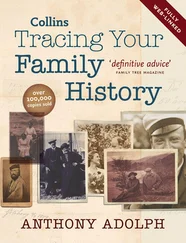Notting Dale differed considerably from Brixton or Paddington, and it might have been tailormade [sic] for the main event. Notting Dale had everything St Ann’s Well Road [in Nottingham] had, and more, in much larger quantities. It had multi-occupied houses with families of different races on each floor. It had a large population of internal migrants, gypsies and Irish, many of them transient single men, packed into a honeycomb of rooms with communal kitchens, toilets and no bathrooms. It had depressed English families who had lived through the war years then watched the rush to the suburbs pass them by while they were trapped in low income jobs and rotten housing. It had a raft of dodgy pubs and poor street lighting. It had gang fighting, illegal drinking clubs, gambling and prostitution. It had a large proportion of frightened and resentful residents. A fortnight before the riots broke out there was a ‘pitched battle’ in Cambridge Gardens, off Ladbroke Grove, between rival gangs, and the residents of several streets got together to present a petition to the London County Council asking for something to be done about the rowdy parties, the mushroom clubs and the violence.
Notting Dale also had a clutch of racist activists, operating at the street corners and in the pubs. Parties like Sir Oswald Mosley’s Union Movement actually had very few members, but in the atmosphere of hostility and uncertainty which had begun to surround the migrants they provided the country with an idiom, a vocabulary and a programme of action which shaped the resentments of inarticulate and disgruntled people at various levels of society. In the week before the Notting Hill riots broke out a drunken fifteen-year-old approached a black man in a railway carriage at Liverpool Street station and was reported as shouting, ‘Here’s one of them – you black knave. We have complained to our government about you people. You come here, you take our women and do all sorts of things free of charge. They won’t hang you so we will have to do it. ’
Leaving aside the peculiarity of the boy’s language after it had been filtered through various official reports, the style and content echoes precisely the rhetoric being peddled by such right-wing activists as Mosley, John Bean and Colin Jordan.
There follows an interview with Barbadian osteopath Rudy Braithwaite, who arrived in Britain in 1957:
I remember going to listen to some of the speeches that Mosley would make, you know. I was too young to really take on board what it meant when you talk about the Third Reich and all that sort of thing. And Britain is a white country and it’s for white people, and that sort of thing. That was the gist of the discussion that he would have on this little soap box. And there were a lot of people, who are very respectable now, who used to be supporters of Mosley. I could put my finger on them. I know who they are.
Very massive crowds, big crowds used to come, you know. A lot of people would follow him. I mean, he used to have his meetings on one of the side streets off Westbourne Park Road. And there were people who would really come from everywhere and listen to Mosley, you know. And it was crazy. But that happened. He was a very convincing speaker. And he spoke without a breath, he didn’t take much. He would speak and things would roll out of his mouth, so that he was very impressive. When I remember some of the things that were being said. It’s very impressive. And he said, and perhaps that is true, he used to say, ‘Many of the people who are in high places, who are politicians, would love to say what I am saying now. ’
I remember those words. But they are too scared to say it because of the likelihood of jeopardising their wonderful, tidy positions. And, of course, that was borne out by Duncan Sandys [a right-wing Tory MP and minister with a chequered career], who talked about ‘polka-dot grandchildren’. And Gerald Nabarro [a right-wing Tory MP and notorious roué of the 1950s and 1960s, mainly famous for his handlebar moustache], who couldn’t even drive on a main street without driving up the wrong way. Yet he got away with it, his racism. He was very blatant about his racist behaviour.
The Empire Windrush , by the way, set off on her final voyage in February 1954, sailing from Yokohama and Kure to the United Kingdom with 1,500 wounded UN soldiers from the Korean War. The battered ship, long past her best, took ten weeks to make Port Said, and she was later condemned.
Prejudice of a different kind hit Britain hard nearly fifty years after the Notting Hill riots, and the form it took is indicative of how radically and dramatically our culture has changed within a generation.
During the London rush hour on 7 July 2005 four bombs exploded, three on the underground at 08.50, and another on a Number 30 bus in Tavistock Square, not far from Euston Station, an hour later. Fifty-two innocent people were killed, and more than 700 injured, some seriously disabled for life. The four suicide bombers were young Muslim men, all of whom were British citizens and all of whom would have had a perfect right to identity cards – the introduction of which as a means of countering terrorism is clearly invalid.
The London bombing (a similar attack was launched in the same city a fortnight later, but miraculously failed) was the third in a series which started with the destruction of the World Trade Center by Al Qaida in New York in 2001 (3,000 dead). The second was the bombing of the Madrid rail system on 11 March 2004 (191 dead, 1,700 wounded).
We can see how long a shadow an empire, even in its last stages, can cast. England has been no stranger to bomb attacks in its recent past anyway, perpetrated by the IRA, and these outrages were also ultimately the result of decisions made decades earlier and perpetuated in the name of the Empire, largely because irreconcilable differences had been created.
It is true that following the bombings young Muslim men, or indeed anyone with similar looks, ran the risk for a time of being regarded with fear and suspicion. But there were no significant race riots such as those that had occurred four years earlier in Oldham and other major cities in northern England. There were race riots in Birmingham in October 2005, but the confrontations then were not between whites and blacks but between Afro-Caribbeans and South Asians, where the former local population is predominantly Christian and the latter predominantly Muslim. The riots, which took place over the weekend of 22/23 October, were triggered by rumours that a black teenage girl had been raped by a gang of Muslim men.
Violent outbursts of this type have occurred from time to time ever since immigrants from the former British colonies began to arrive in noticeable numbers after the end of the Second World War. The first major race riots – not officially recognized as such – were those of Nottingham and Notting Hill in 1958. Though the Notting Hill Carnival came into being (in 1959, in St Pancras Town Hall) as a reply to the Notting Hill riots, tensions remained for many years after that. I can still remember the kind of looks I got when I was going out with a Guyanan girl in London in the mid-1960s.
We have – hopefully – come a long way since then. Most people, wherever they have come from, just want to get on with their lives, look after their families, have a more-or-less congenial job, and so on. That is self-evident. It is the few who muck things up for the many, and the many either have to put up with it or suffer. The people of Iraq, who as I write suffer outrages like the London bombs on a daily basis, are no different from anyone else in that respect. Prejudice against foreigners is endemic but it is essentially rare, and it is the child of propaganda. Many Muslims are in as great danger of tarring us white ‘Christians’ with the same sort of brush that we can be in danger of tarring them with. (And we should also be aware that as early as 1995 the French secret service had invented a nickname – ‘Londonistan’ – for our capital, as a result of their suspicion that it was a breeding ground for terrorists operating in Algeria; our reputation not helped by an initially, no doubt commendably liberal, but perhaps ultimately ill-advised indulgence towards such extremists as Abu Hamza al-Masri.)
Читать дальше
